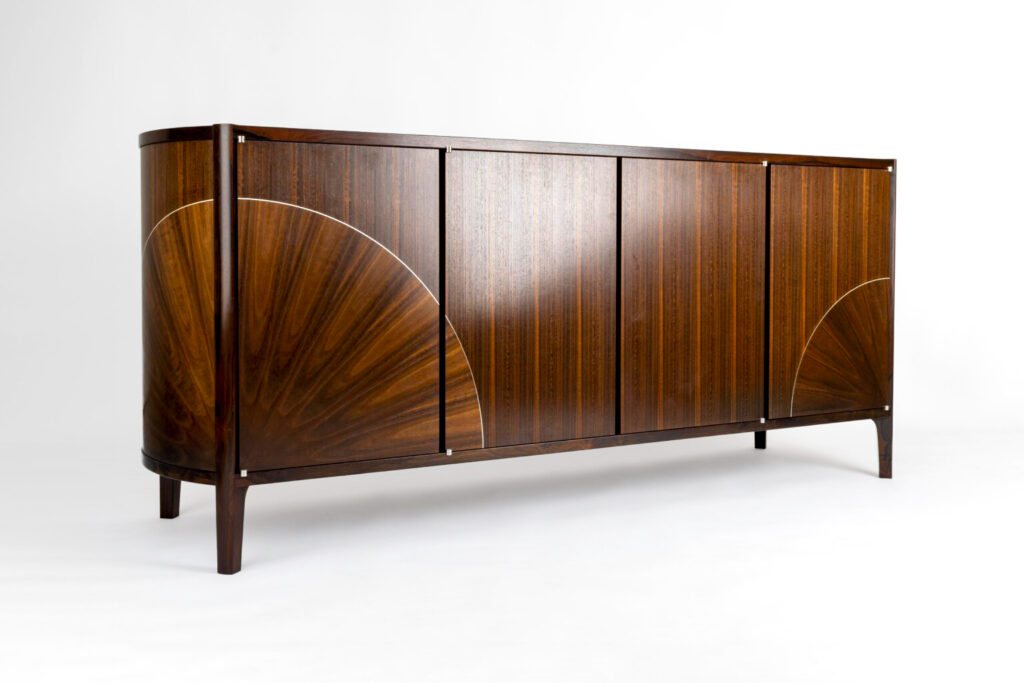
Course Overview
Making: With hands and machines
We start with the first principles of fine woodworking, understanding the material up close and the fundamental skills involved in making. After a very short time, students at Rowden are creating precise work and developing a thorough understanding of hand tools accuracy. The course then expands into increasingly complex and technical projects whilst using an array of tools and processes.
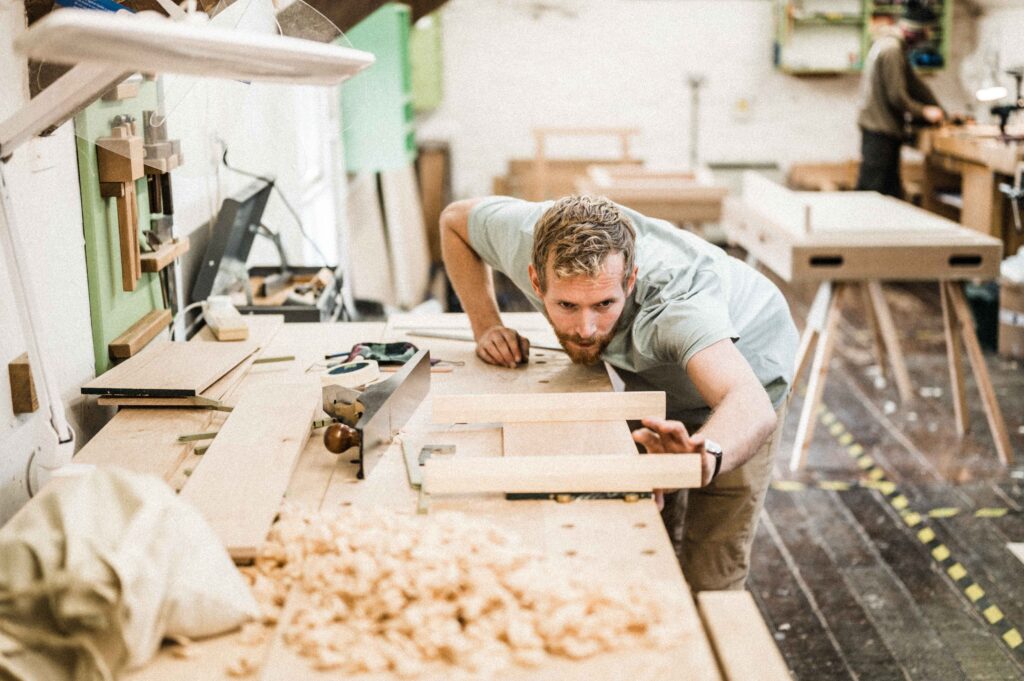
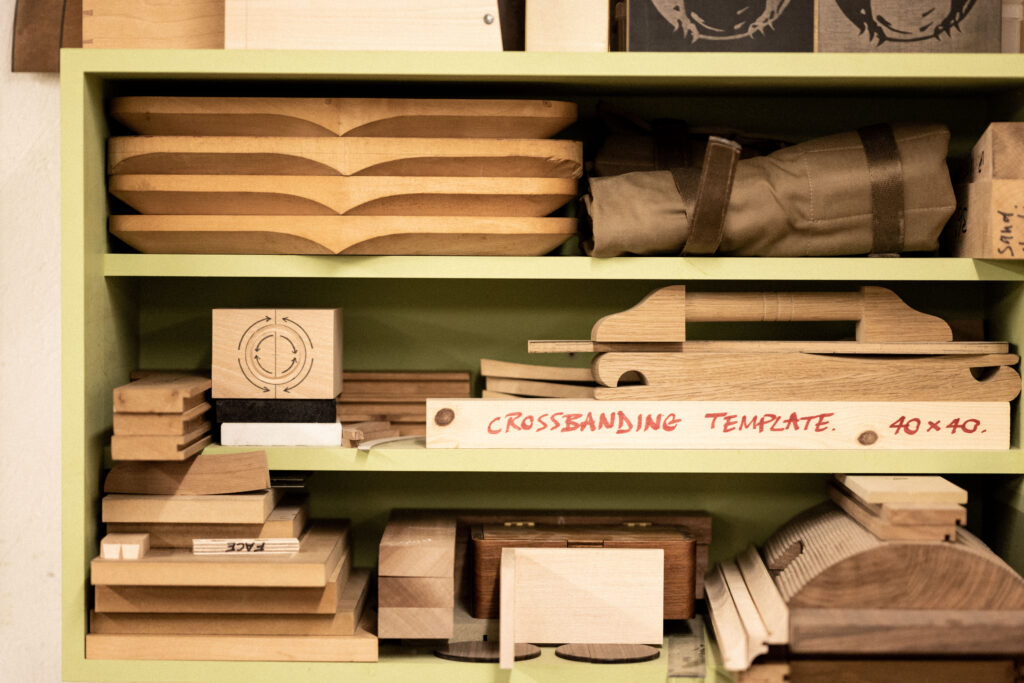
After learning what professional work feels like at the bench, students progress into our 2000sqft+ machine room. Over just a few months they are adept with hand tools, power tools and machines and working to tolerances of 0.25mm or less.
Critically, Rowden’s course structure ensures students fully comprehend how and why they would use any tool, process or joint. We prepare students to independently apply the skills they are acquiring, not just in the bubble of a learning workshop.
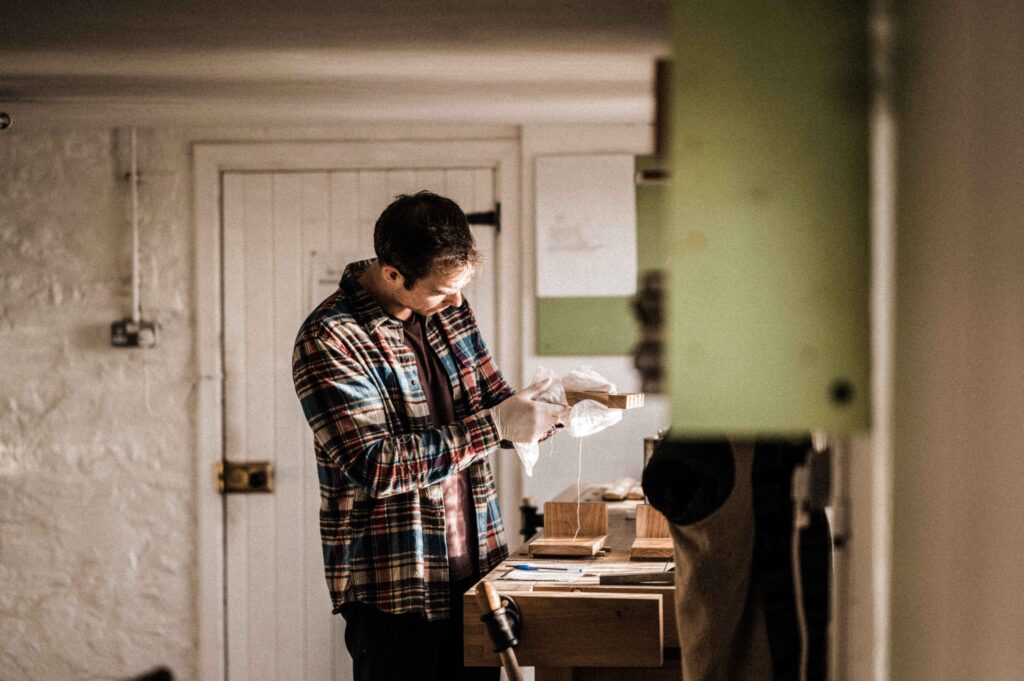
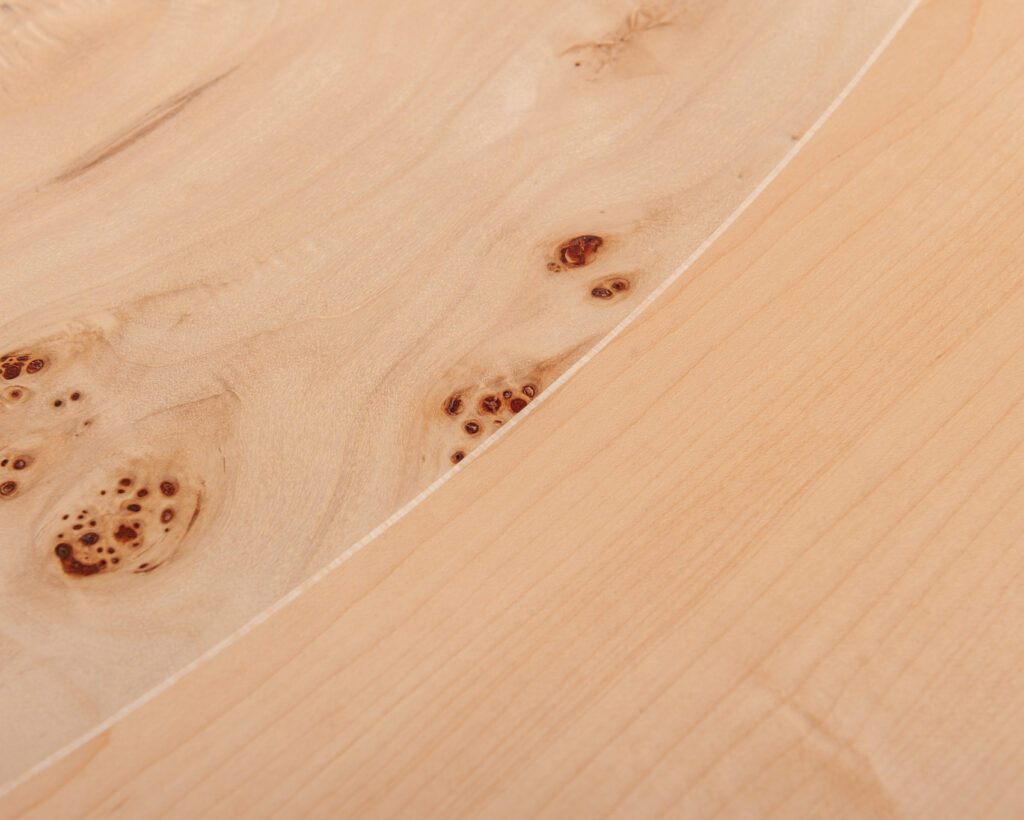
Design: Learning a visual vocabulary
In our experience, understanding, developing and honing design skills is critical to cabinetmaking. Alongside hands-on work at the bench, students engage in a rich design curriculum. Conducted in our dedicated art studio, we focus on artistic and technical drawing skills, 3D modelling in CAD and design theory.
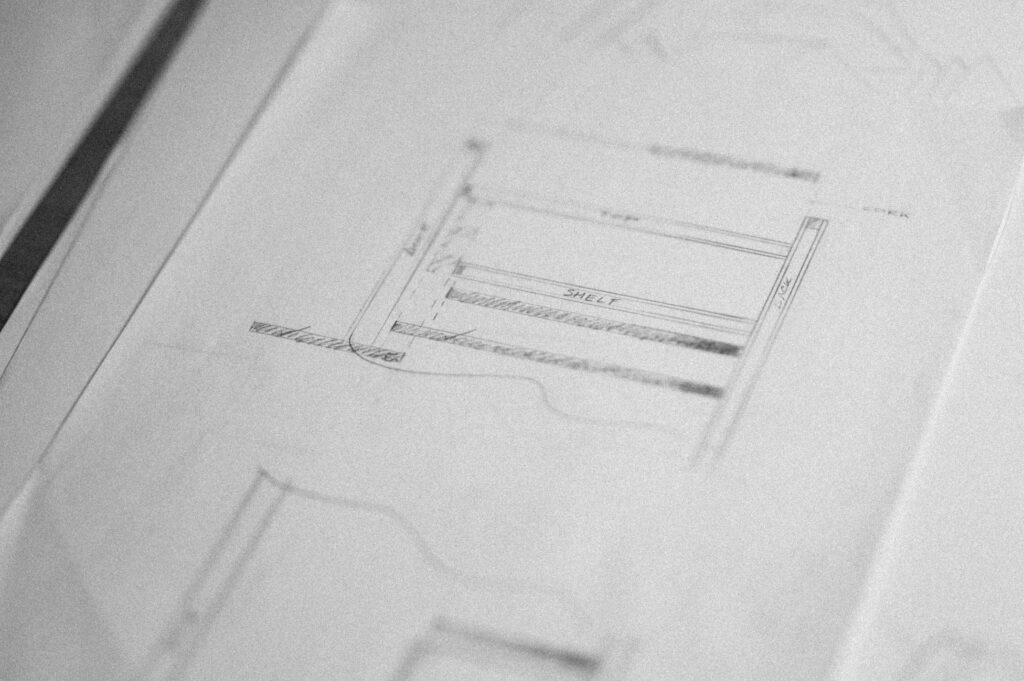
Many students come to Rowden feeling that they cannot draw or are not ‘creative’. Both drawing and design classes show students that these statements are seldom accurate. We each have the capacity to make our own original design contributions. Students learn to articulate their creative sides through artistic drawing and sketching classes. They will know how to fully interrogate and resolve their furniture through technical drawing and CAD. This creative, focused learning enables each student to understand their potential as designer/makers and more importantly, how to access that talent.
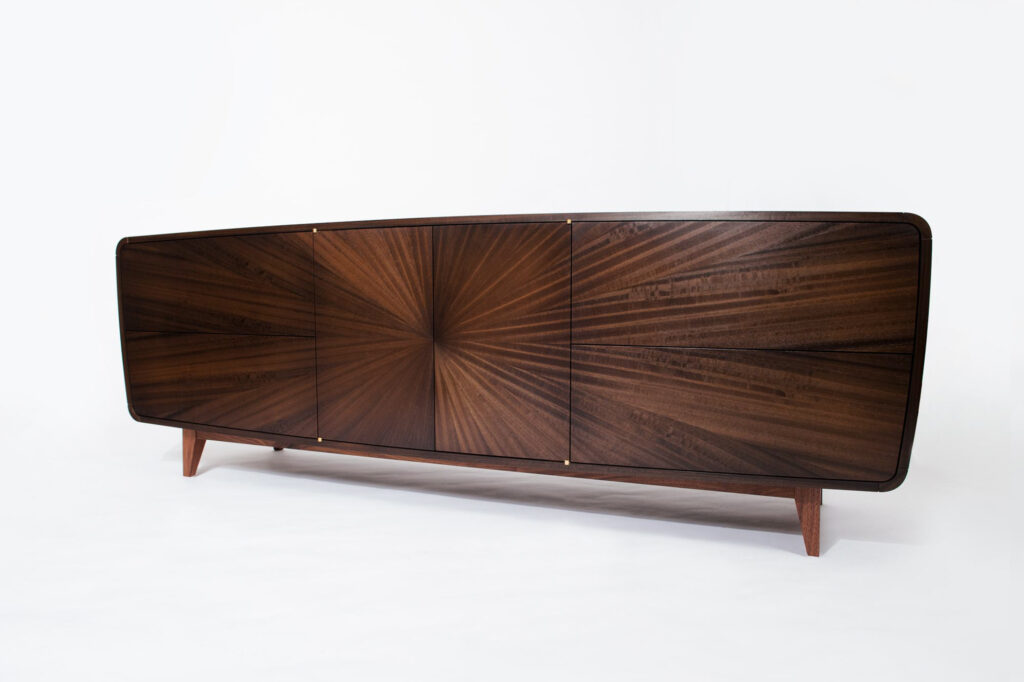
Business: Practical insight into the business of woodworking
Knowing how to apply woodworking in a professional capacity is vital, and we lay this out clearly in our business classes. Ours is not a business class in general terms; it is specific to the profession of furniture making. How it functions, how to approach it, the pitfalls and the best practices.
What are you going to do with your new-found skills? What are you going to make, and how will you find clients? How are you going to market your skills, and what should you charge? And if you decide to start a business, or become a maker for an employer, how do you manage your finances? Get funding? Find a workspace?
The business class can ensure that students see a return on their investment in the course and themselves.

Course Structure
Every syllabus at Rowden starts with the basics. Working from the ground up cements the standard necessary for professional cabinetmaking. There is a high degree of structure in the first half of the year, and we focus on mastering core skills to make and design outstanding furniture. In the second half, students put this knowledge to use and have a chance to explore their creative capacity. By this point, they will be capable of resolving designs and producing pieces of furniture of the highest quality.
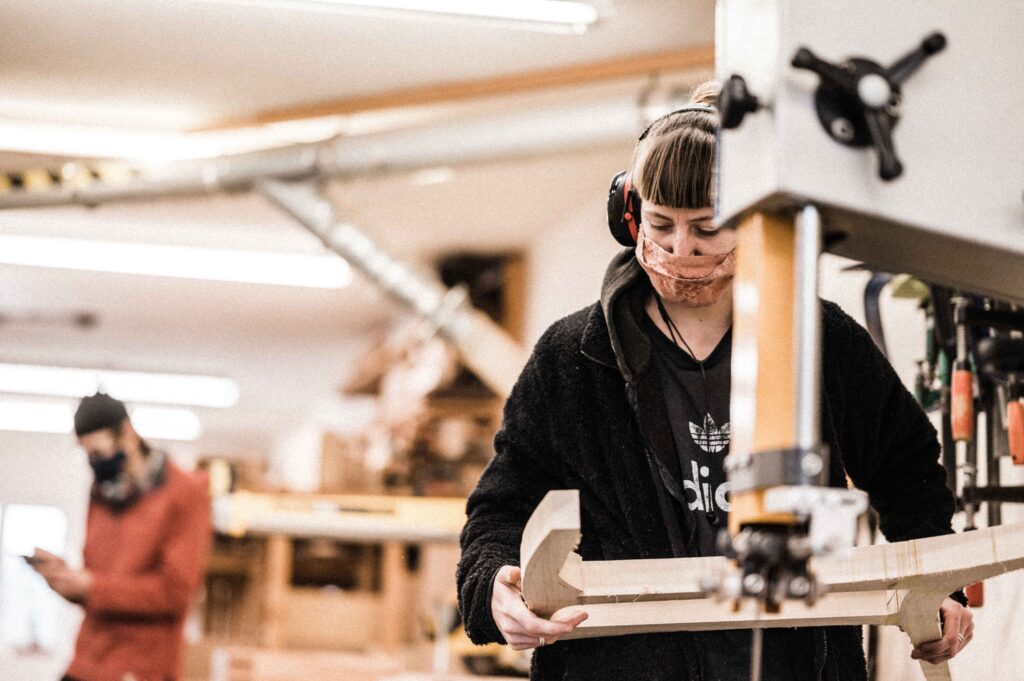
Rowden ensures students understand the capabilities of many different tools in their hands; a hand plane, a table saw, a pencil or CAD software. All useful at some point in the creation of fine furniture. We ensure they develop the confidence to appreciate the scope and limitations of each and when each might be appropriate.
Students gain a thorough understanding of construction in wood, design principles, timber biology, drawing, modelling, the business of furniture making and much, much more. It is an intensive year roughly equal to 3 years spent in a traditional apprenticeship; 50 weeks of rigorous training over twelve months. This course can move students from complete beginners to furniture makers whose skills will stand alongside some of the best in professional woodworking today.
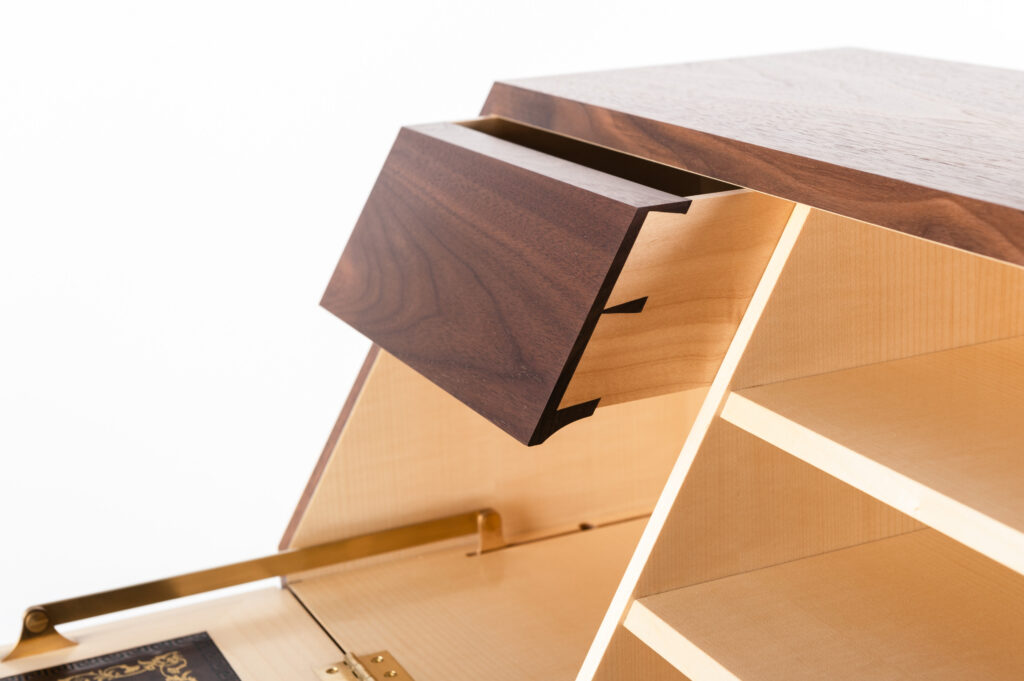
Your Tutors
You will work with our full tuition team over 12 months at Rowden. Our tutors are exceptional makers and designers in their own right, led by Master Craftsman Daren Millman.
Fine furniture is not just about using the tools and unique design – it is a shift in mindset. Rowden’s tuition team looks to instil a high standard of precision, care, and quality in each student’s work. We empower them to explore and harness their creative potential. Quality is the primary marker at Rowden, not the quantity of furniture produced.
You will find out about where time spent at Rowden can lead to on our alumni page.
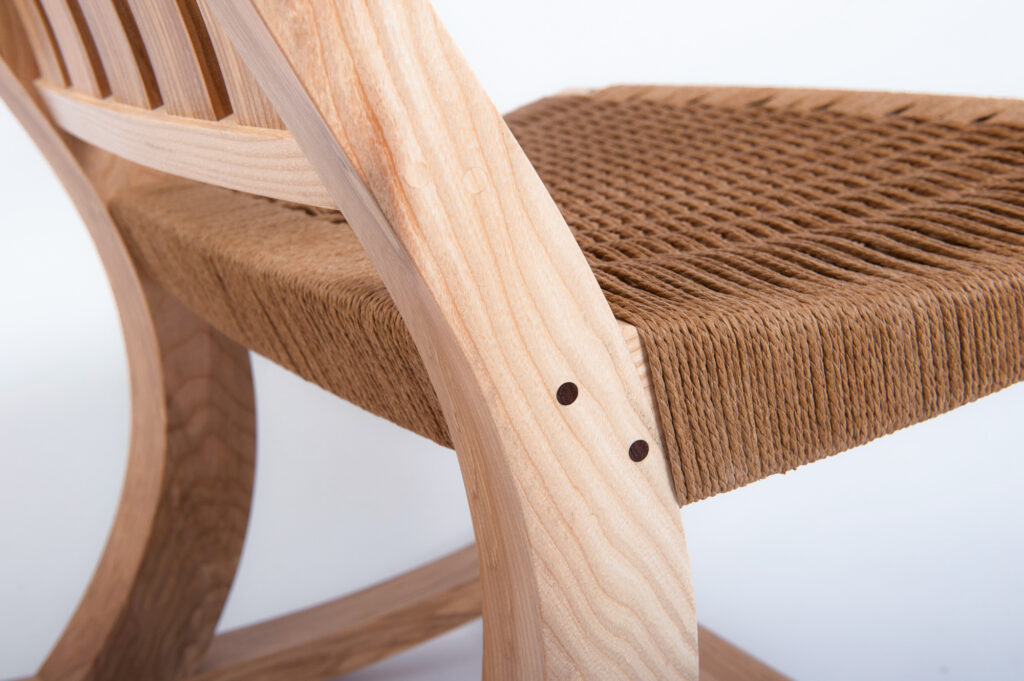
Logistics: Getting to Rowden
Every year around 99% of our students are coming from elsewhere in the UK or the world. Many are here with a previous career behind them, some coming as an alternative to university. Students at Rowden are anywhere between 18 and 80. Universally there are logistics to consider.
Can I do this? Where will I live? Where is good for my family? How will I get around? What is Devon or the UK like? We can help with all of these questions. Our FAQ’s page should answer most but get in touch if you would like to discuss your specific situation.
Our intakes occur in February, June, September and November each year. Each intake is small, but the exact size will depend on the space we have available. Course payments are spread over instalments, and a deposit is necessary to confirm a place with us. Depending on your situation and start date additional funding may be available, either through our DBS Designer/Maker Bursary or QEST, supporting excellence in British craftsmanship.
Course Tuition Fees:
Twelve Month Professional Designer Maker:
2025: £23,250
